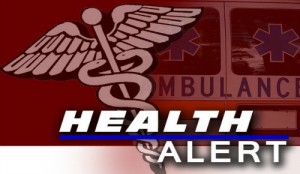
This in an update in regards to the tuberculosis outbreak in the Ocala-Marion County area.
We reached out to the Department of Health (DOH) and we have received further information.
Mr. Ackerman, the Public Information Officer for the Department of Health in Marion County said, “None of the 12 people who tested positive for TB are contagious. They are not showing any symptoms of TB, therefore they cannot pass the infection on to others. “
So far, only a few students and family and friends that are not connected with North Marion have tested positive. The students that have tested positive are in fact from the High School, not the middle school. They do not have symptoms therefore they cannot be contagious, said Mr. Ackerman. Adding, “Only a person who is sick with the TB disease can spread it to other people. A person with an infection but no symptoms cannot spread the germ. Even if a person is infected with the germ, the bacteria may remain dormant and not contagious to others. ”
He goes on to say, “None of the 12 people with positive TB tests have symptoms of TB disease, so they are not contagious. These types of cases are called “latent TB infections.” People with latent TB infection have TB germs in their bodies, but they are not sick because the germs are not active. These people do not have symptoms of TB disease and they cannot spread the germs to others. However, they may develop TB disease in the future if not treated preventatively.”
Our medical sources have indicated that TB is very contagious, however DOH has informed us that the disease is actually quite difficult to catch. TB is less contagious than measles, mumps, chicken pox, and influenza, says Department of Health Officials.
Mr. Ackerman also said, “Only persons who have had very close, day-to-day contact with a person who is sick with TB disease run the risk of contracting the disease. When we say ‘close prolonged contact’, there is a general rule that at least eight cumulative hours of close prolonged contact time must have occurred for someone to be considered in enough contact with a person with TB for spread of the bacteria to happen.”
He said, “And sunlight kills the TB germ, so any outside activities are excluded for exposure consideration. The TB germ does not survive on surfaces and must be breathed in to cause infection. Regular routine cleaning of the school is all that is needed. Marion County Public Schools performed a more thorough cleaning of the school during the summer when the TB case was first discovered.”
According to the Centers for Disease Control and Prevention, 5-10 percent of the U.S. population will test positive if given a tuberculosis test. For that reason the Department Of Health is fully expecting to have positive test results. About nine percent of the tests have come back positive, so the Department Of Health is still within the CDC range of what would come back positive if tests were given to the general population.
Seven people who tested positive for TB are students. There have been five members of the student’s circle of family and friends not connected with the school who have tested positive, making a total of 12 people who have tested positive, said Department of Health Officials.
The DOH is following up on the 12 individuals who tested positive in order to evaluate them for treatment. The contact investigation included students and staff members from the school, as well as a small number of family and friends of the individual student.
The DOH identified 171 individuals who were in contact with the student.
The information shows there is no need for panic. DOH would not put the public nor the students at risk if there were signs of active contagious infections.
The Department of Health has provided documents that may be helpful to the general public and might answer any questions residents may have.
This story is still developing. Check back for updates.
